
The Enchanting Charm of St. Gertrud in Lübeck
St. Gertrud is a picturesque neighbourhood in the historic city of Lübeck, Germany. Known for its tranquil atmosphere and scenic beauty, this area is perfect for those looking to escape the hustle and bustle of the city center while still enjoying the rich cultural heritage Lübeck has to offer. The neighbourhood is named after St. Gertrud's Church, a beautiful gothic-style structure that stands as a testament to the area's historical significance. As you wander through the quiet streets, you'll find charming old houses, lush green parks, and tree-lined avenues that make for a perfect afternoon stroll. The Wakenitz River, which flows through the area, adds to the serene ambiance and offers opportunities for boating and picnicking. St. Gertrud is also home to a variety of local cafes and restaurants where you can savor traditional German cuisine. The community-oriented vibe is palpable, with friendly locals always ready to share stories about their beloved neighbourhood. Whether you're interested in history, nature, or simply enjoying a peaceful day out, St. Gertrud has something for everyone.
Local tips in St. Gertrud
- Visit St. Gertrud's Church to appreciate its gothic architecture and historical significance.
- Take a leisurely walk along the Wakenitz River for stunning views and a peaceful atmosphere.
- Stop by one of the local cafes to try traditional German pastries and coffee.
- Explore the neighbourhood parks for a relaxing picnic or a quiet reading spot.
The Enchanting Charm of St. Gertrud in Lübeck
St. Gertrud is a picturesque neighbourhood in the historic city of Lübeck, Germany. Known for its tranquil atmosphere and scenic beauty, this area is perfect for those looking to escape the hustle and bustle of the city center while still enjoying the rich cultural heritage Lübeck has to offer. The neighbourhood is named after St. Gertrud's Church, a beautiful gothic-style structure that stands as a testament to the area's historical significance. As you wander through the quiet streets, you'll find charming old houses, lush green parks, and tree-lined avenues that make for a perfect afternoon stroll. The Wakenitz River, which flows through the area, adds to the serene ambiance and offers opportunities for boating and picnicking. St. Gertrud is also home to a variety of local cafes and restaurants where you can savor traditional German cuisine. The community-oriented vibe is palpable, with friendly locals always ready to share stories about their beloved neighbourhood. Whether you're interested in history, nature, or simply enjoying a peaceful day out, St. Gertrud has something for everyone.
Iconic landmarks you can’t miss
Burgtor
Discover the Burgtor in Lübeck, a captivating medieval city gate showcasing late Gothic architecture and centuries of Hanseatic history, offering a unique glimpse into the past.
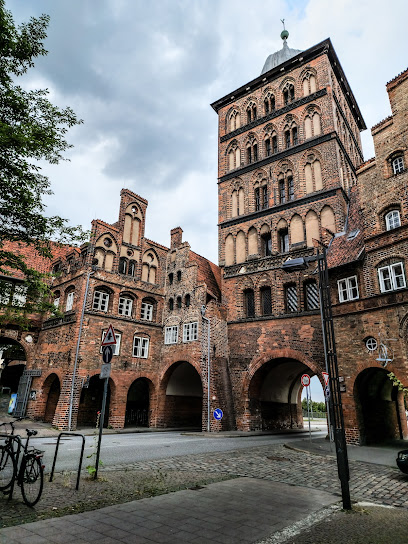
Old Port Gothmund
Discover Old Port Gothmund, a picturesque fishing village near Lübeck, Germany, offering a serene escape into a world of historic charm, maritime heritage, and artistic inspiration.
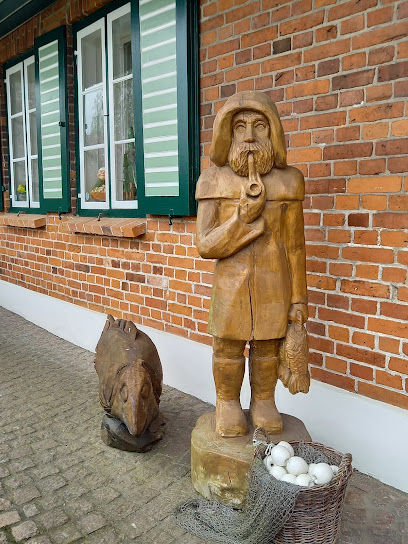
Zöllnerhaus
Discover the Zöllnerhaus in Lübeck, a Renaissance gem beside the historic Burgtor, offering a glimpse into the city's Hanseatic past and architectural beauty.
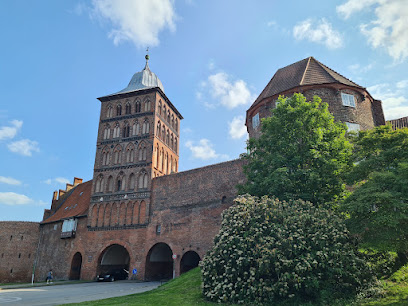
Jerusalemsberg
Discover Jerusalemsberg in Lübeck: A historical landmark offering serene green spaces, a Gothic shrine, and panoramic city views, perfect for history enthusiasts and peaceful retreats.
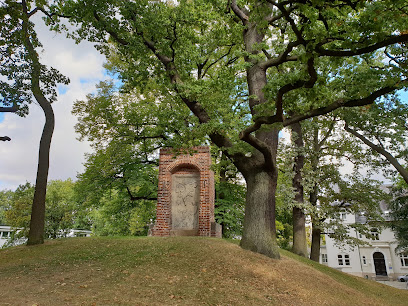
Skulptur der Maria Magdalena
Discover the serene Skulptur der Maria Magdalena in Lübeck's historic Altstadt, a thought-provoking bronze sculpture offering a unique perspective on faith and repentance.
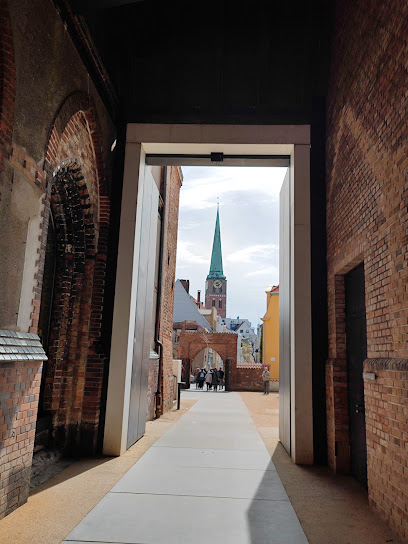
Herrnburger Dünen
Explore the unique inland dune landscape of Herrnburger Dünen near Lübeck, a haven for wildlife and a reminder of the region's diverse natural history.
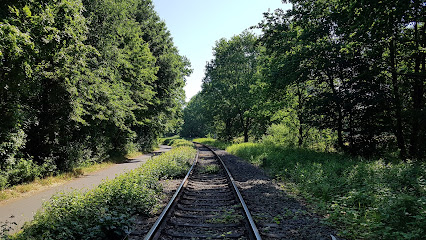
Gedenkstätte Jerusalemsberg
Reflect on history and honor the victims of the Holocaust at Gedenkstätte Jerusalemsberg in Lübeck, a serene memorial park offering a space for contemplation and remembrance.
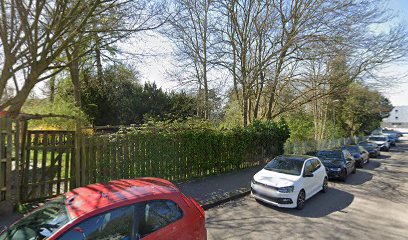
Froschkönigteich
Discover the enchanting Froschkönigteich in Lübeck's Stadtpark, a serene oasis with a fairytale charm, perfect for relaxation and a touch of magic in the heart of St. Gertrud.
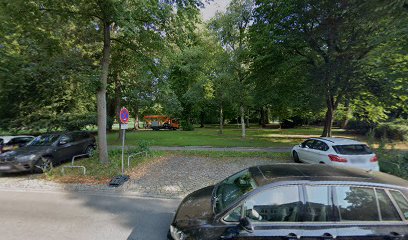
Petersilienstraße
Discover Petersilienstraße in Lübeck's historic Altstadt: a charming lane with medieval architecture, local crafts, and culinary delights, offering a unique Hanseatic experience.
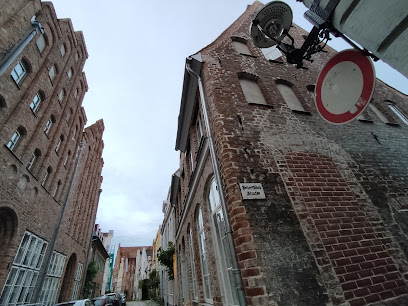
Steingarten im Schulgarten
Discover a serene escape in Lübeck's Schulgarten: Explore the unique Steingarten, a meticulously designed rock garden showcasing alpine plants and tranquil pathways by the Wakenitz River.
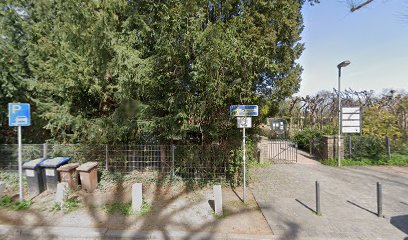
Unmissable attractions to see
Old Port Gothmund
Experience the serene beauty and rich maritime heritage of Old Port Gothmund, Lübeck's hidden fishing village gem.
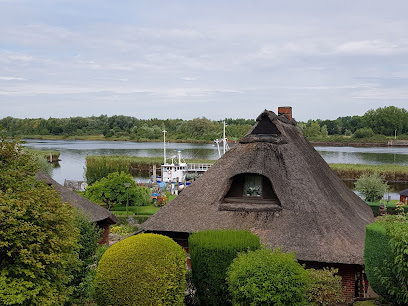
City Park Lübeck
Experience the tranquil beauty of City Park Lübeck, where lush landscapes meet rich culture in a serene urban escape.
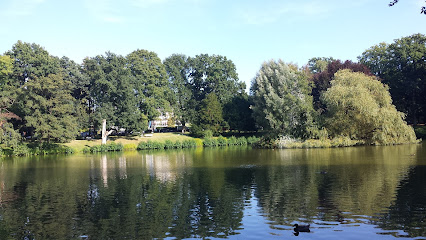
Willy Brandt House, Lübeck
Explore the Willy Brandt House in Lübeck, a museum celebrating the life and legacy of Germany's Nobel Peace Prize-winning Chancellor, Willy Brandt.
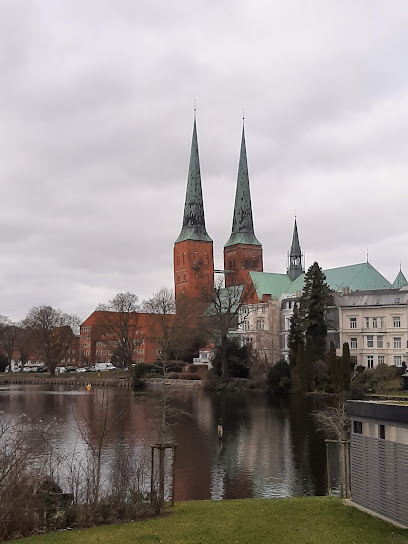
Engelswisch
Discover the medieval charm of Engelswisch in Lübeck, a UNESCO World Heritage site with stunning architecture and vibrant cultural experiences.
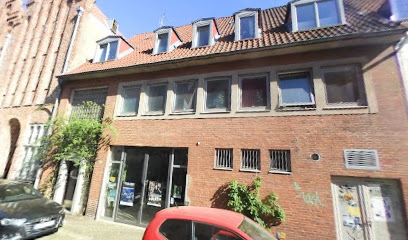
Essential places to dine
Schiffergesellschaft
Discover the historic Schiffergesellschaft in Lübeck—where traditional German cuisine meets maritime charm amidst stunning medieval architecture.
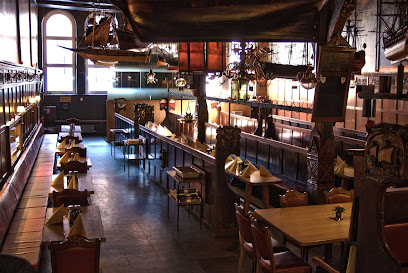
Fangfrisch
Experience the best of Lübeck's seafood at Fangfrisch, where fresh ingredients meet culinary excellence in a cozy atmosphere.
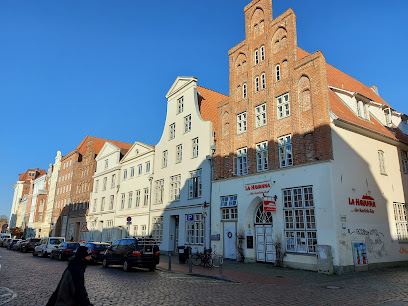
Lübecker Kartoffelkeller
Experience authentic German cuisine in Lübeck's historic Altstadt at Kartoffelkeller, where tradition meets taste.
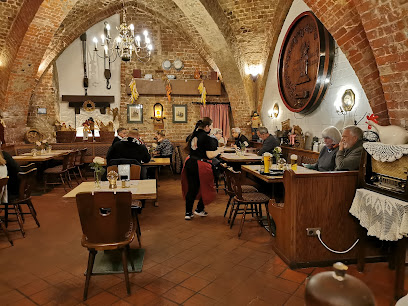
Ristorante Da Angelo
Discover authentic Italian flavors at Ristorante Da Angelo in Lübeck – where every dish is crafted with passion and tradition.
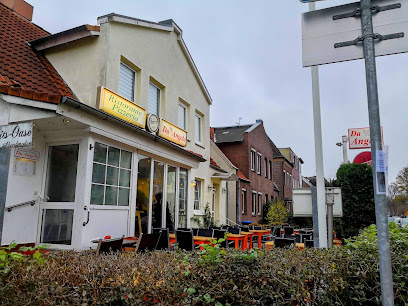
Ristorante La Casa
Savor authentic Italian cuisine at Ristorante La Casa in Lübeck – where every dish tells a story of tradition and passion.
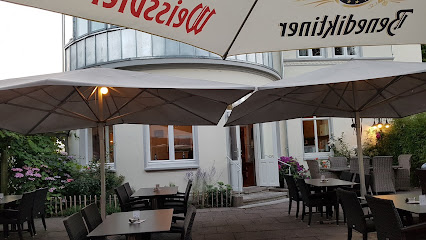
Ristorante Gusto
Experience authentic Italian cuisine at Ristorante Gusto in Lübeck's historic Altstadt—where every dish is crafted with passion and tradition.
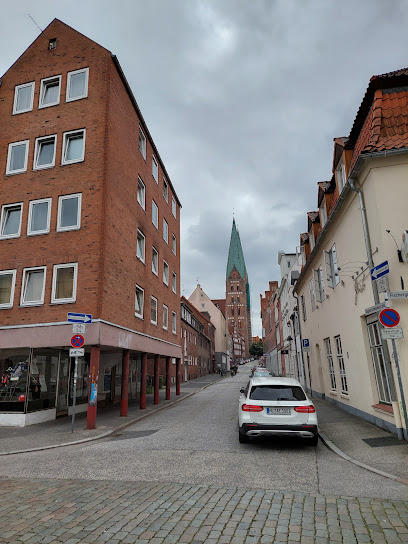
Meilenstein Restaurant & Bar - Lübeck
Experience fine dining at Meilenstein Restaurant & Bar in Lübeck—where traditional German cuisine meets modern culinary artistry.
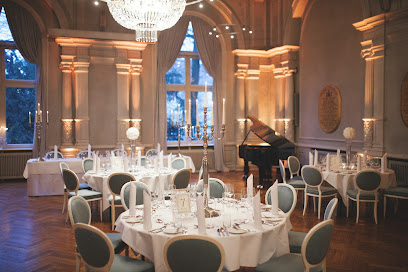
Das Kleine Restaurant
Experience authentic German cuisine at Das Kleine Restaurant in Lübeck - where tradition meets taste.
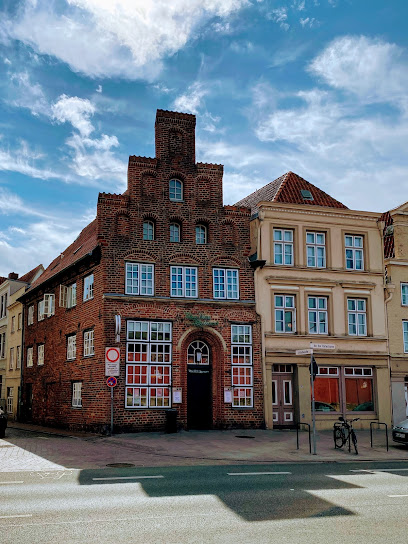
KOCHWERK Lübeck - das Restaurant
Experience exceptional local cuisine at KOCHWERK Lübeck - a buffet restaurant celebrating fresh ingredients and delicious flavors.
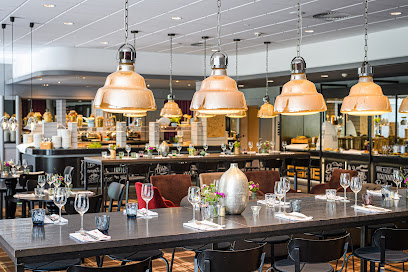
DAS KÖSTLICH-Lübeck Altstadt
Experience exceptional German cuisine at DAS KÖSTLICH in Lübeck's historic Altstadt - where tradition meets innovation.
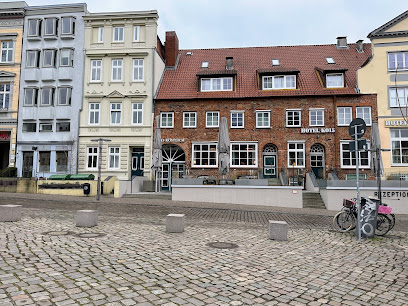
Markets, malls and hidden boutiques
LUV SHOPPING
Discover LUV SHOPPING in Lübeck, a vibrant shopping mall offering a diverse range of stores and dining experiences for every traveler.
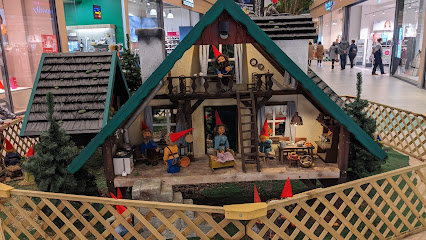
Haerder-Center
Discover the best of shopping and dining at Haerder-Center in Lübeck, a vibrant hub for tourists and locals alike.
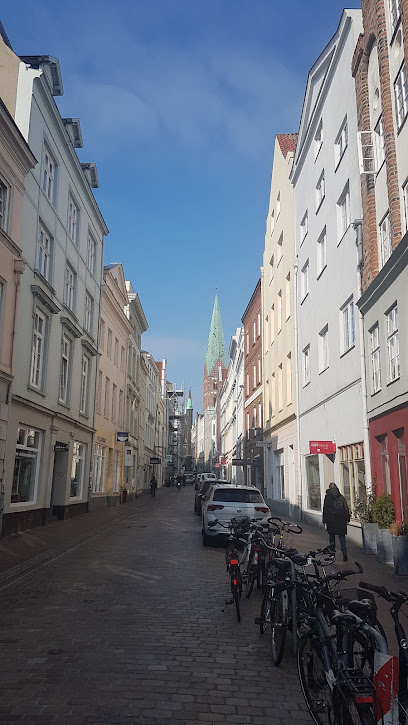
Vintage Vogue - Retro Boutique
Discover a vintage fashion paradise at Vintage Vogue in Lübeck's historic Old Town, offering unique retro clothing and accessories.
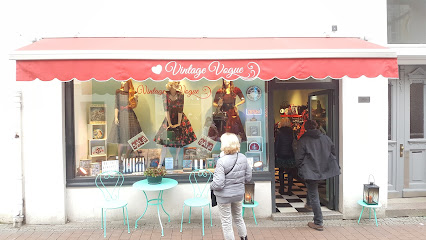
KULT
Explore KULT in Lübeck for a fashionable shopping experience with stylish clothing for men and women in a vibrant atmosphere.

Between
Discover the finest contemporary clothing at Between, a stylish store in Lübeck's historic center, perfect for fashion lovers and casual shoppers alike.
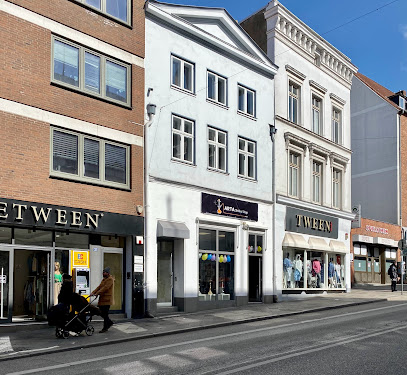
INDLU design store - Handmade in South Africa
Explore INDLU Design Store in Lübeck for unique handmade gifts, fashion accessories, and gourmet treats from South Africa.
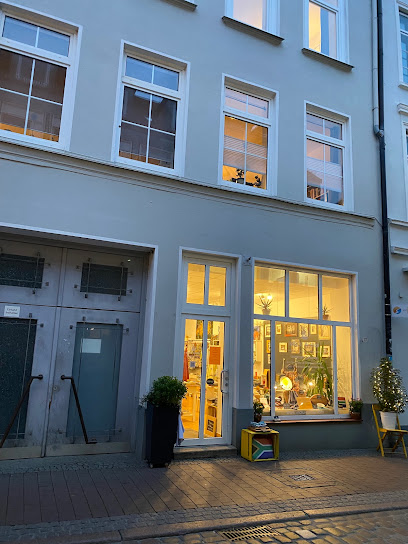
Lübeck Laden
Discover unique souvenirs and local crafts at Lübeck Laden, the perfect gift shop in Lübeck's historic Old Town.
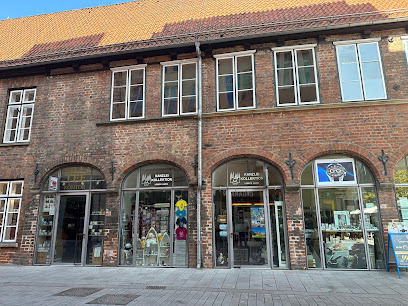
Elfenreich
Explore Elfenreich in Lübeck for exquisite clothing that blends local charm with contemporary fashion, perfect for every tourist's wardrobe.
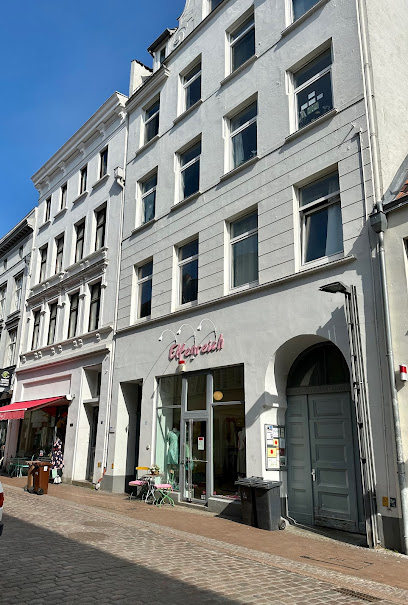
Laden 15 - Lübeck
Discover unique gifts and stylish apparel at Laden 15 in Lübeck's historic Altstadt, a must-visit for every traveler seeking a piece of local culture.
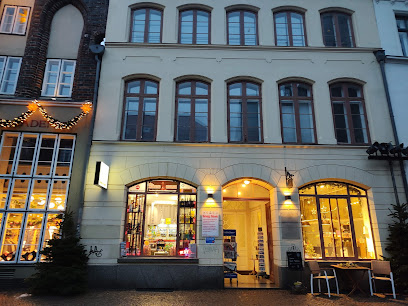
HERZENSWUNSCH concept store
Explore HERZENSWUNSCH in Lübeck for unique local crafts, fashion, and home decor reflecting the city's rich heritage.
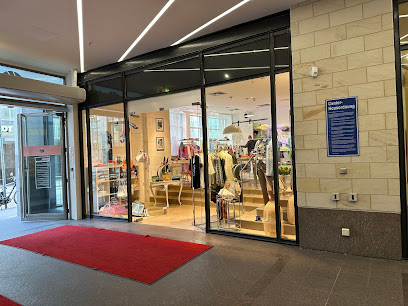
Essential bars & hidden hideouts
Dietrich's Bar - Luebeck
Experience the vibrant nightlife at Dietrich's Bar in Lübeck, where great drinks and a welcoming atmosphere await every visitor.
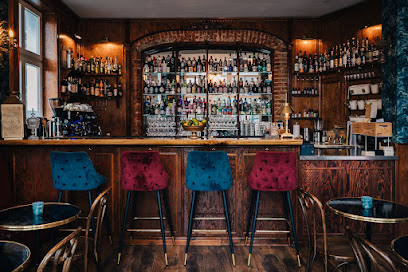
Blauer Engel - Lübeck
Experience the lively atmosphere and local brews at Blauer Engel, a must-visit pub in Lübeck's historic Old Town.
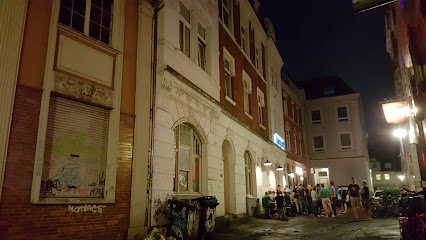
Tonfink - Kulturcafé & Bar - Lübeck
Experience the vibrant culture of Lübeck at Tonfink, a unique café and bar offering live music, delicious drinks, and a cozy atmosphere.
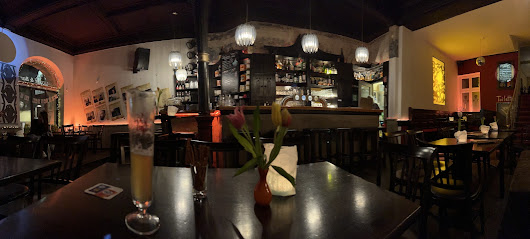
Torrio's - American Bar
Discover the lively ambiance and diverse drink selection at Torrio's - American Bar in Lübeck's charming Altstadt.
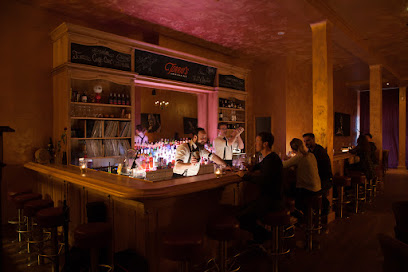
Unklar Bar - Lübeck
Experience the lively nightlife of Lübeck at Unklar Bar, where eclectic drinks and a friendly atmosphere await you.
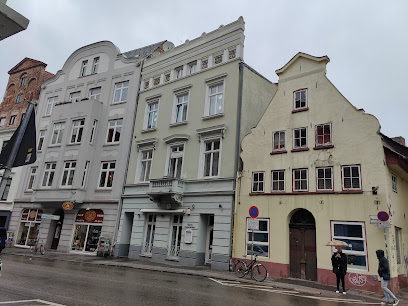
Die. 2te Kneipe
Discover the cozy charm of Die. 2te Kneipe in Lübeck, a welcoming bar perfect for relaxing and enjoying a variety of drinks with locals and fellow travelers.
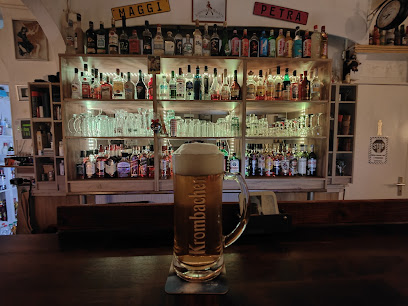
Marli-Treff
Discover the lively Marli-Treff pub in Lübeck, a local favorite for drinks, snacks, and an authentic experience of German nightlife.
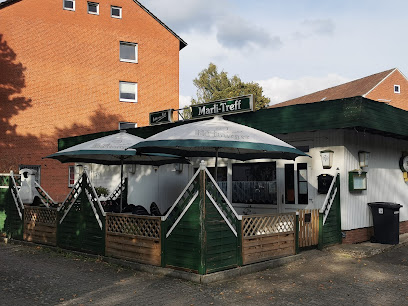
Gotteskeller
Experience the vibrant nightlife of Lübeck at Gotteskeller, a lively bar offering an extensive drink selection and a unique atmosphere.
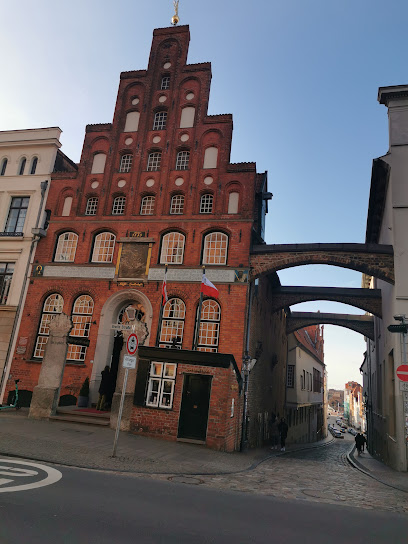
Morgana Pub
Discover the vibrant nightlife of Lübeck at Morgana Pub, a lively bar offering a variety of drinks in a welcoming atmosphere.
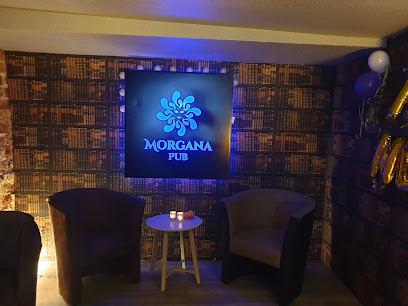
Sabbelkiste
Experience the lively atmosphere at Sabbelkiste, Lübeck's local bar offering a delightful selection of drinks and a vibrant ambiance.
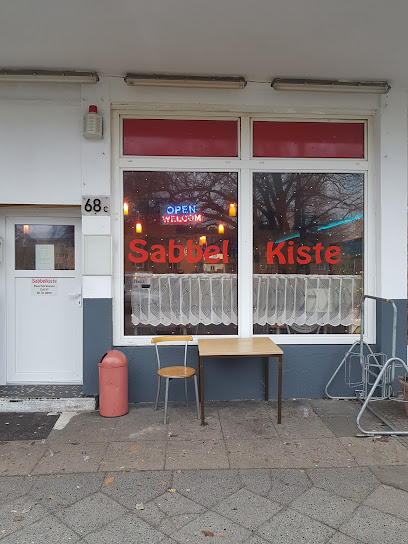
Local Phrases
-
- HelloHallo
[ha-lo] - GoodbyeAuf Wiedersehen
[owf vee-der-zayn] - YesJa
[ya] - NoNein
[nine] - Please/You're welcomeBitte
[bi-te] - Thank youDanke
[dahn-kuh] - Excuse me/SorryEntschuldigung
[ent-shool-di-gung] - How are you?Wie geht es dir?
[vee gayt es deer] - Fine. And you?Gut. Und dir?
[goot oont deer] - Do you speak English?Sprichst du Englisch?
[shprikhst doo eng-lish] - I don't understandIch verstehe nicht
[ikh fer-shtay-uh nikht]
- HelloHallo
-
- I'd like to see the menu, pleaseIch möchte bitte die Speisekarte sehen
[ikh merkhte bi-te dee shpy-suh-kahr-te zayn] - I don't eat meatIch esse kein Fleisch
[ikh es-suh kine flysh] - Cheers!Prost!
[prohst] - I would like to pay, pleaseIch möchte bitte bezahlen
[ikh merkhte bi-te be-tsal-en]
- I'd like to see the menu, pleaseIch möchte bitte die Speisekarte sehen
-
- Help!Hilfe!
[hil-fuh] - Go away!Geh weg!
[geh vekh] - Call the Police!Ruf die Polizei!
[roof dee po-lee-tsy] - Call a doctor!Ruf einen Arzt!
[roof i-nen ahrts] - I'm lostIch habe mich verirrt
[ikh hah-buh meekh feh-rirt] - I'm illIch bin krank
[ikh bin krank]
- Help!Hilfe!
-
- I'd like to buy...Ich möchte ... kaufen
[ikh merkhte ... kow-fen] - I'm just lookingIch schaue nur
[ikh sh-ow-uh noor] - How much is it?Wie viel kostet es?
[vee feel kaw-stet es] - That's too expensiveDas ist zu teuer
[dahs ist tso toy-er] - Can you lower the price?Kannst du den Preis senken?
[kah-nst doo den prees zeng-ken]
- I'd like to buy...Ich möchte ... kaufen
-
- What time is it?Wie spät ist es?
[vee shpet ist es] - It's one o'clockEs ist ein Uhr
[es ist iyn oor] - Half past (10)Halb elf
[halb elf] - MorningMorgen
[mawr-gen] - AfternoonNachmittag
[nahk-mit-tahk] - EveningAbend
[ah-bent] - YesterdayGestern
[geh-shtern] - TodayHeute
[hoy-te] - TomorrowMorgen
[mawr-gen] - 1Eins
[iyns] - 2Zwei
[tsvai] - 3Drei
[dry] - 4Vier
[feer] - 5Fünf
[foonf] - 6Sechs
[zeks] - 7Sieben
[zee-ben] - 8Acht
[ahkt] - 9Neun
[noyn] - 10Zehn
[tsayn]
- What time is it?Wie spät ist es?
-
- Where's a/the...?Wo ist ein/der...?
[vo ist iyn/dehr] - What's the address?Was ist die Adresse?
[vas ist dee ah-dreh-suh] - Can you show me (on the map)?Kannst du mir das zeigen (auf der Karte)?
[kah-nst doo meer dahs tsee-gen (owf dehr kar-te)] - When's the next (bus)?Wann kommt der nächste (Bus)?
[vahn kohmt dehr naykh-ste (boos)] - A ticket (to ....)Eine Fahrkarte (nach ....)
[i-nuh fahr-kar-te (nahkh ....)]
- Where's a/the...?Wo ist ein/der...?
History of St. Gertrud
-
St. Gertrud, originally part of the medieval city of Lübeck, began to take shape in the late 19th century as a response to urban expansion. The area was initially characterized by agricultural land and small farms, but as Lübeck grew, St. Gertrud transformed into a residential neighborhood, reflecting the city's development during the industrial revolution.
-
The neighborhood is home to several notable architectural landmarks, including the St. Gertrud Church, built in the early 20th century. The church's striking neo-Gothic design showcases the architectural trends of the time and serves as a focal point for the community. The surrounding buildings, many of which date back to the late 1800s, exhibit a mix of styles that highlight Lübeck's rich architectural history.
-
St. Gertrud has a vibrant cultural scene, with events and festivals that celebrate local traditions. The neighborhood is known for its close-knit community, and various cultural organizations promote the arts, music, and local heritage. This cultural dynamism is part of Lübeck's broader historical narrative as a major Hanseatic city, known for its trade and cultural exchange.
-
During World War II, St. Gertrud, like much of Lübeck, suffered damage from air raids. The post-war period saw extensive reconstruction efforts, with a focus on restoring the neighborhood's historical character while accommodating modern needs. The resilience of the community during this time contributed to a renewed sense of identity and pride in the neighborhood.
-
Today, St. Gertrud is a blend of history and modernity, with well-preserved historical sites coexisting alongside contemporary developments. The neighborhood is known for its green spaces, local markets, and community events, making it a desirable place to live and visit. Its connection to Lübeck's Hanseatic heritage continues to be celebrated, emphasizing the importance of preserving cultural identity in a changing world.
St. Gertrud Essentials
-
St. Gertrud is easily accessible from other neighborhoods in Lübeck. If you are coming from the city center, you can take bus lines 6 or 10, which run frequently and take about 15-20 minutes. Alternatively, walking along the scenic streets takes approximately 30-40 minutes. For those arriving by train, the nearest station is Lübeck Hauptbahnhof (main train station), from where you can catch a bus or taxi to St. Gertrud.
-
St. Gertrud is well-connected by public transport. Buses operate regularly, and a single ticket costs around €2.50. Biking is a popular way to explore the area, with many dedicated bike lanes and rental services available. Walking is also a pleasant option, as the neighborhood is relatively compact and features charming parks and historic sites.
-
St. Gertrud is considered a safe neighborhood for tourists, but standard precautions should still be taken. Avoid poorly lit areas at night and be mindful of your belongings in crowded places. While there are no specific high-crime zones targeting tourists, petty theft can occur in busy areas. It is advisable to stay vigilant, especially around popular attractions.
-
In case of an emergency, dial 112 for immediate assistance. This number will connect you to ambulance, fire, and police services. The nearest hospital is the UKSH Lübeck, located approximately 3 kilometers from St. Gertrud. It is recommended to have travel insurance that covers medical emergencies. For minor health issues, local pharmacies are available for over-the-counter medications.
-
Fashion: Do dress modestly when visiting churches or cultural sites. Avoid overly casual attire like beachwear. Religion: Do respect local customs and traditions, especially in religious settings. Public Transport: Do be courteous and offer your seat to elderly passengers. Don’t eat or drink on buses or trains. Greetings: Do greet locals with a friendly 'Hallo' or 'Guten Tag.' Eating & Drinking: Do try local specialties like Lübecker Marzipan. Don’t be overly loud in public spaces as it may be considered impolite.
-
To experience St. Gertrud like a local, visit the weekly farmer's market on Wednesdays for fresh produce and homemade goods. Explore the neighborhood's parks, such as the beautiful Schulgarten, ideal for a picnic. Engage with locals at cafes and restaurants, where you can learn more about Lübeck's history and culture. Don't forget to take a leisurely stroll along the canals, particularly in the evening when the area is beautifully lit.
Nearby Cities to St. Gertrud
-
Things To Do in Hamburg
-
Things To Do in Rostock
-
Things To Do in Sønderborg
-
Things To Do in Bremen
-
Things To Do in Nyborg
-
Things To Do in Næstved
-
Things To Do in Odense
-
Things To Do in Slagelse
-
Things To Do in Hannover
-
Things To Do in Kolding
-
Things To Do in Køge
-
Things To Do in Kalundborg
-
Things To Do in Ribe
-
Things To Do in Roskilde
-
Things To Do in Vejle








